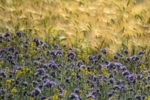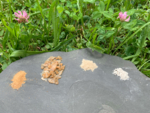-
-
-
-
-
Project BW2Pro - 29/08/2022
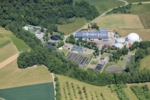
In 2020, Germany’s population collected over 5 million tonnes of biowaste. Most of this was composted, and some was fermented into biogas. Scientists in Baden-Württemberg think there's room for more. Within the project ‘Biowaste to Products’ (BW2Pro) they want to transform biowaste into new products in a biorefinery. The idea is to produce biodegradable plant pots, mulch material, fertilisers, enzymes and biobased plastics in addition to…
https://www.biooekonomie-bw.de/en/articles/news/biowaste-products-biorefinery-transforms-biowaste-new-products
-
-
-
Renaturalised peatlands as carbon dioxide stores - 14/06/2022
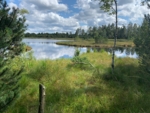
All intact peatlands on our planet store twice the amount of CO2 as all forests. Peatlands are indispensable for preventing and mitigating the effects of climate change. The only problem is that 95 percent of Germany's peatlands have been drained, and thus release around 7 percent of Germany’s total CO2 emissions into the atmosphere. Rewetting is therefore imperative for the climate, the environment and biodiversity – and economically…
https://www.biooekonomie-bw.de/en/articles/news/peatlands-climate-protection-factor-binding-co2-instead-releasing-it
-
Lentil cultivation in a producers’ association - EIP-AGRI Rhizo-Linse project - 23/05/2022
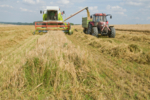
Complicated cultivation, fluctuating yields and complex cleaning: Leisa – as lentils are called in Swabian – are demanding. So to produce lentils economically, 130 farmers in the Swabian Alb have joined forces and set up the organic producers’ association Alb-Leisa. Their lentil harvests are processed and marketed by a company called Lauteracher Alb-Feld-Früchte.
https://www.biooekonomie-bw.de/en/articles/news/cultivation-market-lentils-swabian-alb
-
Lentil cleaning - EIP-AGRI Rhizo-Linse project - 26/04/2022
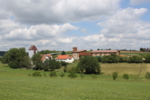
The Altdorf mill, just under 7 km south of the city of Böblingen, has operated lentil cleaning facilities since 2019, the year that the Sessler mill in Renningen, 20 km further north, ceased all operations including lentil cleaning. After receiving a number of enquiries from farmers and local mills, brothers Karl and Jörg Ruthardt took a chance and launched a lentil cleaning operation in addition to their mill and farm shop business.
https://www.biooekonomie-bw.de/en/articles/news/lentil-cleaning-altdorf-mill
-
-
-
-
Lentil cultivation and cleaning on the farm - EIP-AGRI Rhizo-Linse project - 16/03/2022
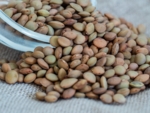
Lentils are among the oldest crop plants in Central European agriculture and were once a popular food in ancient Egypt, Persia and Mesopotamia. The legume was widespread in Germany until the mid-20th century, but has since disappeared completely from farmers’ fields. Over the past decade, lentils have reappeared as a crop grown locally and are cultivated in harmony with nature.
https://www.biooekonomie-bw.de/en/articles/news/lentils-return-heckengaeu-region
-
Alternative foodstuff ? - 09/03/2022
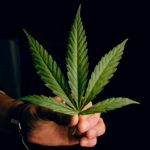
If there were a competition for the ‘crop of the future’, hemp would certainly be at the top. But not because of the intoxicating effect of some hemp varieties. Cannabis has the potential to help supply protein in the quantities required by a growing world population – in a sustainable way. The TASTINO project brings together researchers from academia and industry to work on ways to make the regional superfood available as a vegan alternative.
https://www.biooekonomie-bw.de/en/articles/news/hemp-regional-superfood-and-valuable-source-protein
-
Press release - 02/03/2022
The Ministry for the Environment, Climate Protection and the Energy Sector is funding the new research project RoKKa which is used to prove the viability of recovering raw materials from wastewater. This adds a crucial function to the scope of a conventional sewage treatment plant. Together with the operators of the sewage treatment plants in Erbach and Neu-Ulm, the project partners demonstrate the positive contribution towards climate protection…
https://www.biooekonomie-bw.de/en/articles/pm/die-klaeranlage-der-zukunft-heisst-bioraffinerie
-
-
Press release - 02/02/2022
fischertechnik has set a new milestone with the Animal Friends construction kit, as the building blocks and packaging are largely made of renewable resources and the models depict playful animals in new colours. The company is thereby taking another major step towards sustainability. The bio-based building set recently won the Toy Award, one of the most prestigious awards in the industry.
https://www.biooekonomie-bw.de/en/articles/pm/animal-friends-aus-nachwachsenden-rohstoffen
-
-
-
-
-
Specialized in Sustainability - 30/09/2021
The research project RUN (Rural Urban Nutrient Partnership) explores how waste might be used more efficiently as a resource. In this project, Veronika Fendel investigates how recyclable materials from biowaste and domestic wastewater can be fed back into the material cycle in the best possible way.
https://www.biooekonomie-bw.de/en/articles/pm/circular-economy-future
-
Press release - 30/08/2021
In August 2021, the BioMat Pavilion 2021 was inaugurated on the campus of the University of Stuttgart in a ceremonial setting and in compliance with the hygiene concept. The core of the elegantly curved lightweight construction is an active-bending structure made of natural fibers, reminiscent of bamboo. It was developed as part of the "LeichtPRO" research project.
https://www.biooekonomie-bw.de/en/articles/pm/biegsam-wie-bambus-belastbar-und-leicht
-
Plastics from the field - 12/08/2021
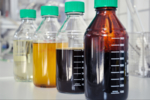
Huge amounts of waste are produced both during food production and by consumers. The Conversion Technologies of Biobased Resources group at the University of Hohenheim’s Institute of Agricultural Engineering has developed a process to convert this biomass into hydroxymethylfurfural (HMF), the highly potent basic chemical that is used to produce plastics.
https://www.biooekonomie-bw.de/en/articles/news/great-potential-biological-residues
Website address: https://www.biooekonomie-bw.de/en/search

